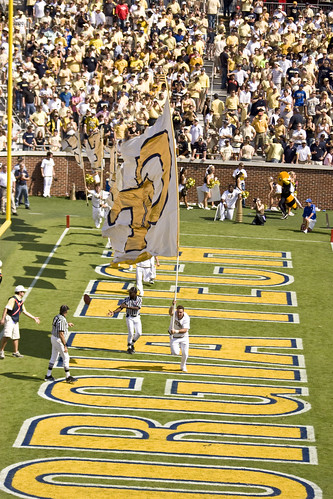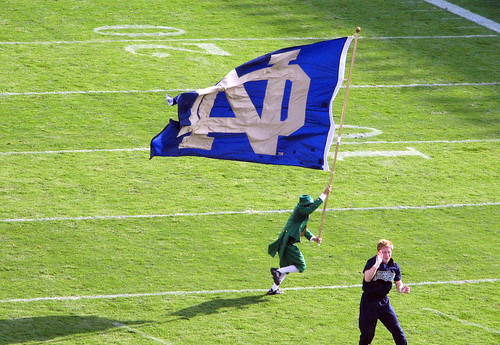Ethics 101 – Resume Integrity an Important Matter
When it comes to your resume, think twice about embellishing your past experiences.
A recent report card from the Josephson Institute paints current high school students in a very negative manner. Citing “entrenched habits of dishonesty” among young people, the survey of more than 30,000 high school students indicates that more students are lying, cheating, and stealing than ever before.
Ironically, we had a disillusioned student leave a comment on the site just after the report card was made public. Coming as a response to our article, The 11 Top Reasons Why Students Drop out of College, the writer not only revealed a significant level of discouragement, he offered a possible solution:
“I am Soooooooooo burned out of this entire experience!!! What would happen if I were to just say that I had the degree on my resume? Anyone ever tried that? How many employers actually check?”
Hopefully, it was a tongue-in-cheek response. But if it wasn’t……..
Honesty and Integrity
Whenever I hear someone propose such a solution, even when the option is thrown around in jest, I can’t help but turn to the very public and humiliating story of George O’Leary.
 During a seven-year period, O’Leary resurrected a moribund Georgia Tech football program. Guiding the team to five winning seasons in his final six years, O’Leary was named the Atlantic Coast Conference ‘Coach of the Year’ award in both 1998 and 2000, and was also named the ‘Bobby Dodd National Coach of the Year’ in 2000.
During a seven-year period, O’Leary resurrected a moribund Georgia Tech football program. Guiding the team to five winning seasons in his final six years, O’Leary was named the Atlantic Coast Conference ‘Coach of the Year’ award in both 1998 and 2000, and was also named the ‘Bobby Dodd National Coach of the Year’ in 2000.
In 2001, the University of Notre Dame, a proud academic institution that routinely graduates more than 90% percent of its student body, selected George O’Leary to be its new head football coach. His appointment resonated with Notre Dame boosters and football fans everywhere.
His selection was seen as an apparent “pull oneself up by the boot straps” kind of story that epitomized the American work ethic. An insignificant football player at a small university, O’Leary had languished long and hard as an assistant football coach before his revival of the football program at Georgia Tech.
Called the perfect candidate by school officials (right down to his Irish name), this hard-working, outstanding leader of young men was deemed the perfect choice to restore storied Notre Dame football to its former golden days. Yet, what began as a true “feel good” story rapidly disintegrated into one of the saddest of public moments for both a coach and an institution that prided itself on integrity and accomplishment.
Reporters Begin Checking Resume
First, one reporter, seeking to find some interesting quotes from the University of New Hampshire regarding O’Leary’s collegiate playing days, made a call to former members of the coaching staff at the school. The reporter was surprised to learn that no one on the coaching staff remembered O’Leary.
Further research failed to find any school records that verified that O’Leary had ever played football for the tiny Division 1AA program. Confronted with this information, O’Leary acknowledged he had embellished his resume.
No, he was not a three-time letter winner at the school as his resume indicated. Injuries and health problems had kept him from receiving any playing time.
Provided with this insight, Notre Dame initially stood by its candidate. After all, O’Leary was reported to be a man of integrity and his tenure as coach at Georgia Tech coincided with the school’s reemergence as a national football power. Notre Dame, at the assurances of O’Leary, were told that his embellishment of his playing record was a singular blunder and that there was nothing else for the university to be concerned with.
A Graduate Degree?
However, the University was soon confronted with further fabrication.
O’Leary’s resume included his having earned a masters degree from NYU in 1972. That graduate degree was extremely important because to work at the collegiate level, even as a coach, one generally must have some form of higher degree.
 Yet, it seems that once again Notre Dame’s candidate had taken the liberty to embellish his achievements. Though NYU acknowledged O’Leary had been a student there, their records indicated that he had never earned a graduate degree.
Yet, it seems that once again Notre Dame’s candidate had taken the liberty to embellish his achievements. Though NYU acknowledged O’Leary had been a student there, their records indicated that he had never earned a graduate degree.
Amazingly, these fabrications had been part of O’Leary’s resume since 1980 when he had filled out an application for an assistant coach position at Syracuse University. These concoctions had never been truly scrutinized until his appointment as head coach at one of America’s most storied institutions.
A stunned national sports audience read with great chagrin of O’Leary’s foibles and their effects on his coaching career. Elders at the time noted that once again ethical shortcomings in one’s youth had come back to not only haunt, but perhaps in this case, even destroy a man’s career.
At the time, much of George O’Leary’s amazing fall from grace was seen as a snapshot of what is wrong with collegiate athletics. O’Leary saw it differently, blaming it on ‘resume padding.’
In submitting his resignation to Notre Dame, one he had been asked to submit, he acknowledged: “In seeking employment I prepared a resume that contained inaccuracies regarding my completion of course work for a master’s degree and also my level of participation in football at my alma mater. These misstatements were never stricken from my resume or biographical sketch in later years.”
A Lesson for All
Any student thinking of falsifying his or her academic record or resume would do well to give careful consideration to the story of George O’Leary. There are numerous lessons that can be learned from the situation, not the least of which involved many, many years of hard work all undone in a matter of days because of ethical transgressions committed at an early age.
 Ironically, at the time, employers did not initially check on O’Leary – the checks were actually done by reporters seeking not to confirm or undo, but to report on what was believed to be an interesting and worthy story.
Ironically, at the time, employers did not initially check on O’Leary – the checks were actually done by reporters seeking not to confirm or undo, but to report on what was believed to be an interesting and worthy story.
However, since that time, public institutions began putting fact-checking measures in place. After all, no employer wants to ever be exposed to the public level of embarrassment the University of Notre Dame was subsequently subjected to.
In response to the earlier comment from one of readers, “What would happen if I were to just say that I had the degree on my resume? Anyone ever tried that? How many employers actually check?”
The answer is yes at least one notable person has tried it. And the second answer is yes, many employers now check.
As to “What would happen if I were just say that I had the degree on my resume?” Well, this story clearly reveals that blatant falsifications can come back to haunt you at the most inopportune time imaginable.


I hope the readers of this post take the message and case history to heart, especially in these trying economic times. Honesty will truly set the candidate apart.
I’d never consider embellishing my resume with lies. After all, that would be too much of a work-lying. Best to be honest than have to lie all the time and get caught anyway. Online resume sites can also be checked and compared against other resumes we post so no point in twisting the truth. My free resume at nuresume.com features nothing but what I truly have.
“ethical shortcomings in one’s youth had come back to not only haunt, but perhaps in this case, even destroy a man’s career.”
That is the reason why one should be honest about the resume. You may get away with it now but I am sure the trust will reveal itself and the mistake you make now will destroy your career later.